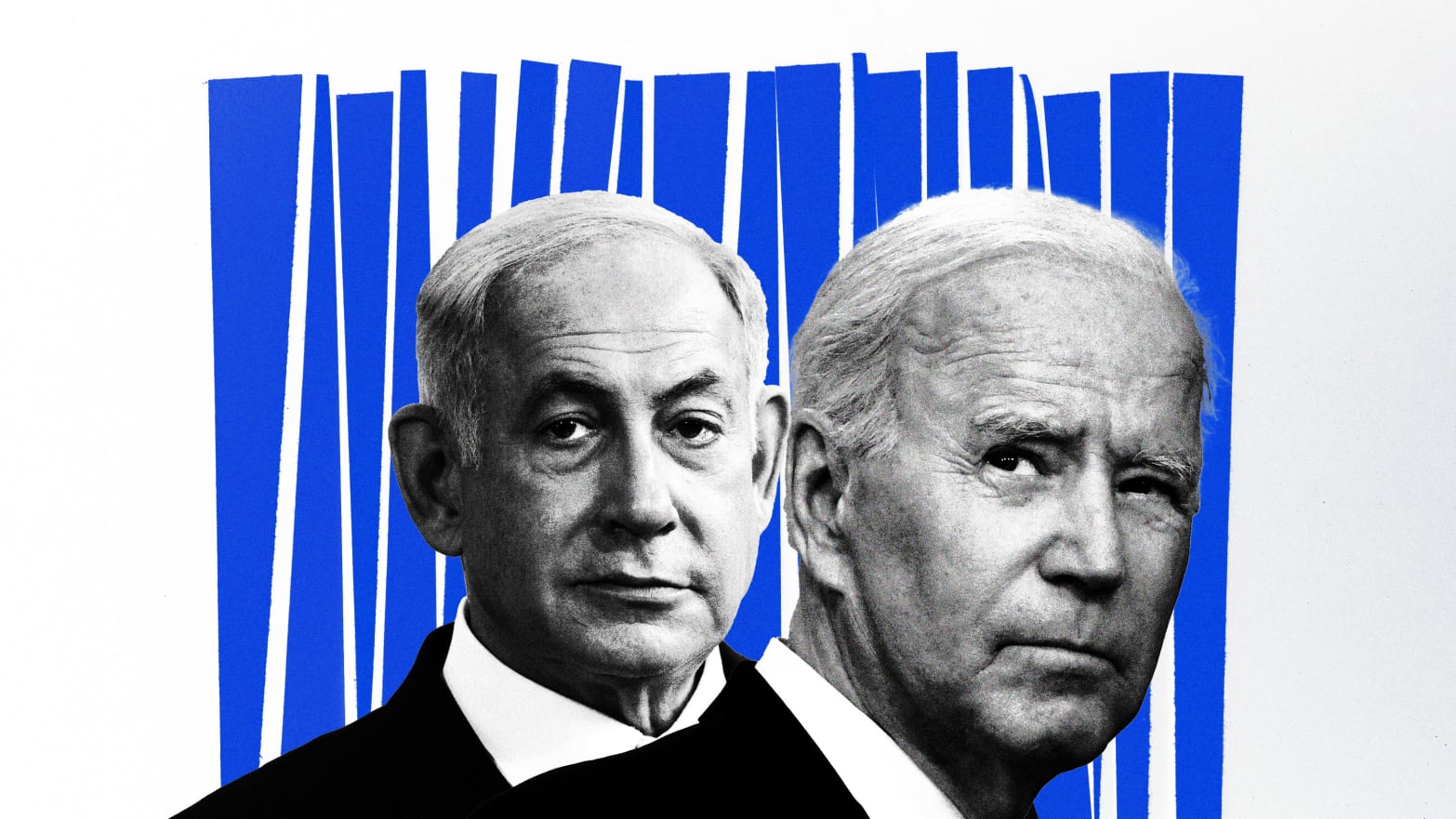America’s special relationship with Israel has, for the foreseeable future, come to an end.
Many will deny this. Many will hope it is not so. But the damage that has been done cannot be easily undone. A relationship built on shared values cannot be easily restored once it is clear those values are no longer shared.
For years, Israel made the case that it was America’s essential ally in the Middle East because it was the only state in the region that was a democracy—not a theocracy or an autocracy like all its neighbors.
That is no longer the case.
While most of the blame for this turn of events must go to Israeli Prime Minister Benjamin Netanyahu and his extreme right-wing coalition of Jewish nationalists, some falls on America’s leaders who, to varying degrees, for years refused to acknowledge Israel’s drift toward authoritarianism or, for that matter, its serial abuses of millions of the people who lived within the borders it controlled.
As recently as a week ago, only nine people in the U.S. Congress dared stand up to the lie that Israel was not a racist state. This despite decades of denying fundamental human rights to Palestinians in territories over which it asserted power simply because they were Palestinian.
The chorus of American leaders who regularly promised Israel’s leaders we would be with them (no matter what they did) invited Netanyahu and the thugocracy he assembled around him to do their worst. The Israeli leaders knew there was no price to pay. They knew that American aid would keep on coming. They knew American leaders would apologize for or cover up their crimes, block the U.N. from taking action against them, and maintain the myth that they were democratic when becoming less and less so.

A demonstrator wearing a mask depicting Israeli Prime Minister Benjamin Netanyahu takes part in a sit-in to block the entrance of the Knesset, Israel's parliament, in Jerusalem on July 24, 2023.
Menahem Kahana / Getty
It is, of course, galling and revealing that it took the most baldfaced assault on the democratic rights of Jewish Israelis ever to get awareness of the decay within the Israeli polity to the level it is today.
Part of that is due to the natural and warranted support that has long existed for Israel due to its origins as a refuge for Jews escaping the horrors of the Holocaust, and seeking a homeland from which they could control their own destiny. Part of this is due to the fact that Israel was created to be a democracy, built around ideals much like those on which the U.S. was founded. Part of this is due to the fact that Israel was a valued ally during the Cold War, a potent counterforce to Soviet friends in a vital region of the world.
We must also acknowledge that part of the support for Israel was due to the political influence of its supporters among the American electorate, from Zionist Jews to evangelical Christians. Some among these supporters have been particularly effective in making any wavering of support by political leaders seem toxic. This was accomplished via multiple means, but among these were the establishment of bright red lines, such as the argument that failing to support the government of Israel’s ethno-nationalist policies was tantamount to antisemitism.
Politicians in both U.S. parties therefore failed to offer sufficient criticism to Netanyahu as he bulldozed Palestinian settlements or changed Israel’s laws to shift the country in a more theocratic direction.
Even when Netanyahu, frustrated that his support from Democrats was not enthusiastic enough, became overtly partisan—embracing the GOP and, in particular, the MAGA GOP—this continued. Those who criticized Israel were ostracized and condemned. Trump offered Bibi a blank check and in exchange was offered a train station and a settlement named after him.

Israeli Prime Minister Benjamin Netanyahu speaks with former U.S. President Donald Trump.
Kobi Gideon / Getty
In recent months, as Netanyahu sought to change Israel’s laws to eviscerate the power and independence of its Supreme Court, while the Biden administration offered stronger and stronger words to warn the Israeli government away from such action, no major changes were made in U.S. plans to continue to provide billions of dollars of military and other forms of aid to Israel. Promises from Netanyahu that (to Israeli observers) were clearly lies were accepted.
More recently, this tolerance of outrageous behavior was seen to fray further when—in the wake of outright lies by Netanyahu about the nature of Biden’s support for him—the U.S. president took the extraordinary step of reaching out to New York Times columnist Tom Friedman to help him communicate the truth of what he had said to the Israeli prime minister, so that Bibi could no longer continue to twist Biden’s words as he had been doing.
But with the passage of the first part of Netanyahu’s plan to strip away the powers of the Israeli Supreme Court, it must be clear that the lies were lies, that the intent is undeniably anti-democratic, that we no longer share the values we once celebrated with Israel, and that the relationship must be reassessed.
Strikingly, some stalwart supporters of the traditional U.S.-Israel relationship, like former U.S. ambassadors to Israel Martin Indyk and Daniel Kurtzer, have said what was previously unthinkable: That the U.S. must consider stopping the provision of military aid to Israel.
They are right. We must consider it. We must, as Tom Friedman has argued in The Times, must use our special history with Israel in support of democracy in that country.
But we need to recognize that Israeli politics have changed, and that while hundreds of thousands of Israelis have taken to the streets to protest the actions of the Netanyahu coalition, the damage that has already been done is likely to be compounded. More aggressive actions to settle the occupied territories using force are likely to follow. More blows against Israeli democracy are likely to follow. Even if the protests gain further momentum, divisions within Israeli politics are likely to remain for a long time to come.
America’s leaders must recognize that the policy of biting their tongues when Israel’s government brutalizes Palestinians‚ or when it has telegraphed its coming attacks on its own democracy—has been a failure.
Stronger steps were called for earlier. Stronger steps are called for now.
Aid to Israel cannot be a blank check. It must be driven by U.S. interests. And currently, the Netanyahu government (which also sat on the fence when the U.S. called for support in Ukraine) is not acting in those interests.
Shockingly, one senior U.S. government official said to me recently that as the U.S. pursued normalization between Israel and Saudi Arabia, it was the Israeli government rather than that of Saudi Crown Prince Mohammed bin Salman (also known as MBS—a leader with whom they have had bad blood), that was proving the more difficult with which to deal.
U.S. political leaders must finally tune out the specious argument that opposing the actions of a racist Israeli government contemptuous of international law and fundamental human rights is somehow antisemitic. No one is doing more damage to the legitimacy of the state of Israel than the current Israeli government. No one is a greater threat to the state of Israel than Netanyahu and his coalition.
The only way to revive the “special relationship” is to establish that the U.S. and Israel are actually bound together by genuinely shared values. We must be clear about what that means and about the concrete costs of failing to re-establish those values as guiding principles of the Israeli government.
We must also recognize that it means protecting the rights not only of Israeli Jews but of Palestinians, as well, of making democracy and the transparent rule of law available to all who live within the borders—not just of the state of Israel but of the territories over which it exerts its authority. Because giving the Israeli government license to abuse the rights of Palestinians is part of what sent the message that we would tolerate the other abuses they have subsequently committed.
We must also recognize that Netanyahu hopes (and perhaps believes) that he can restore the special relationship by waiting for Donald Trump to be reelected. He knows that a Trump administration would not only be as contemptuous of democracy as he is, but it would be seeking to implement similar policies, in part because Trump (like Netanyahu) shares the desire to use power as a way of avoiding jail time for past crimes.

Israeli Prime Minister Benjamin Netanyahu arrives for a hearing at the Magistrate's Court in Rishon Lezion on January 23, 2023.
Abir Sultan / Getty
Of course, the consequence of a restoration of ties based on the further debasement of the principles on which both governments were once founded would mean something much worse than the end of an international relationship. It would mean a devastating blow to democracy and the rule of law worldwide. It would be a catastrophe for both nations and the planet.
We have come to this dangerous moment by failing to acknowledge and actively work to stop the enemies of our values, our standing, and our security. Given the stakes and the precariousness of the current situation in both countries, we must use every legal lever available at our disposal to undo the damage that has already been done and to stop further erosion at the foundations of our societies.

